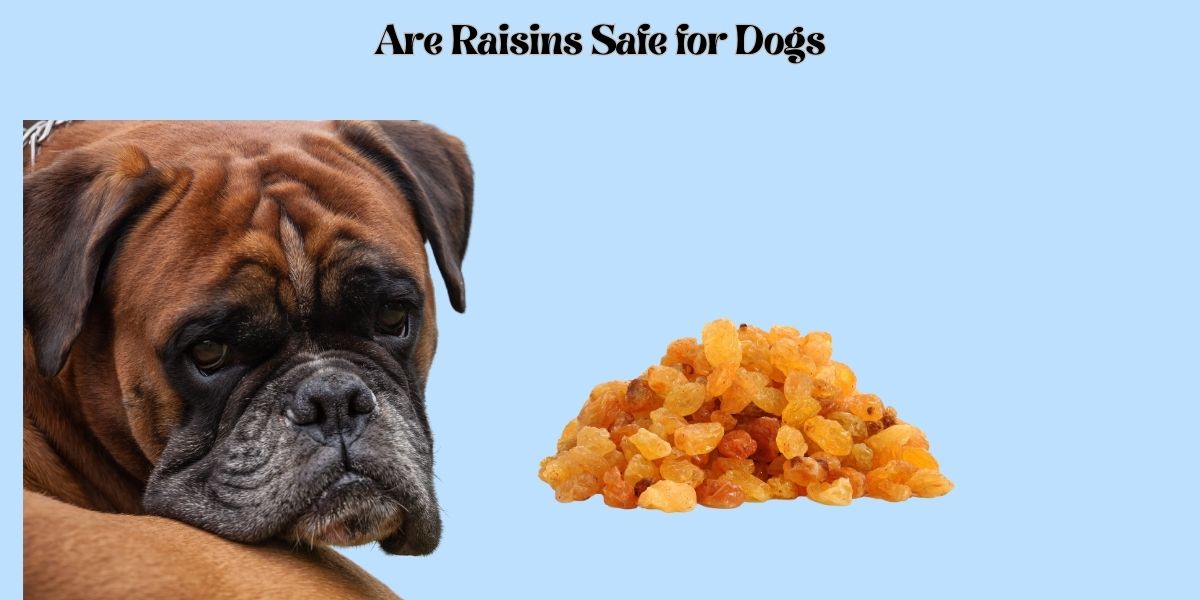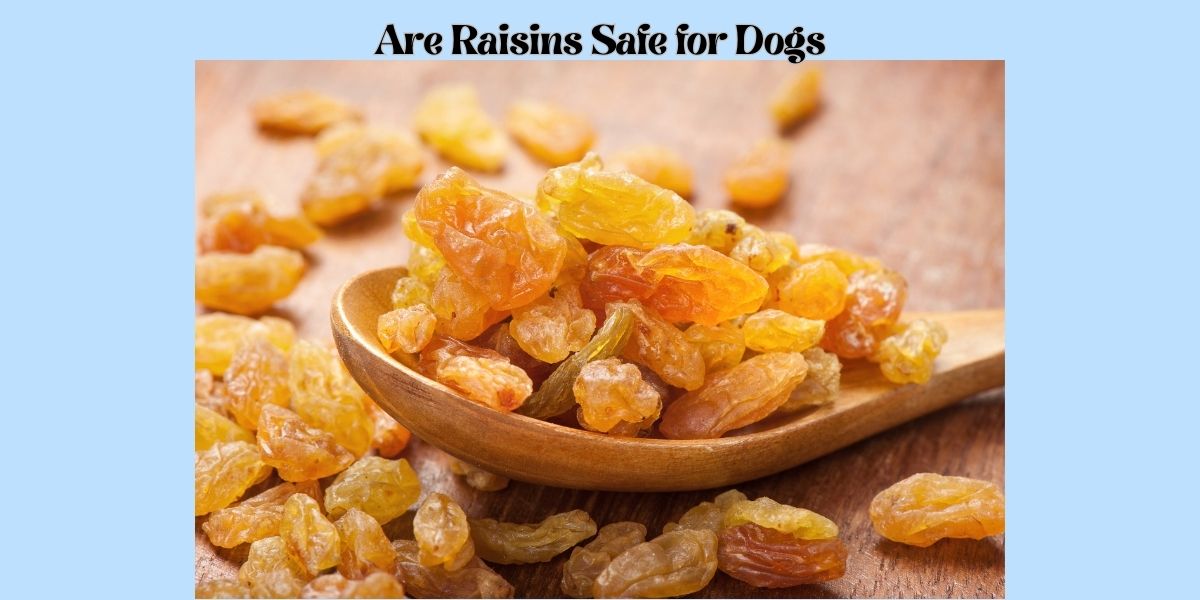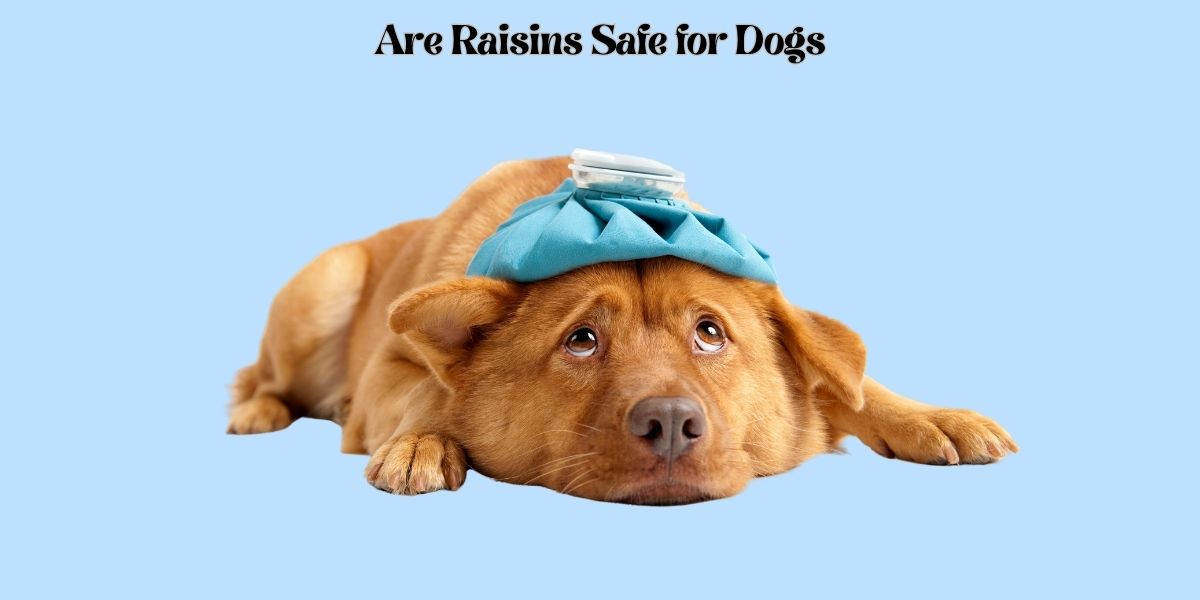Are Raisins Safe for Dogs?

Are Raisins Safe for Dogs? This article explores the question that many dog owners often wonder about: can dogs eat raisins? While raisins may seem like a harmless snack, they can actually be toxic to dogs. It is important for pet owners to understand the potential risks associated with feeding their furry friends this dried fruit. So, if you’re curious about whether or not you can share your raisin oatmeal cookie with your pup, keep reading to find out more.
Potential Dangers of Raisins for Dogs
Toxicity of Raisins
As a dog owner, it’s crucial to be aware of the potential dangers that certain human foods can pose to our furry friends. One such food that can be hazardous for dogs is raisins. While they may be a tasty and convenient snack for us humans, raisins can actually be toxic to dogs. This means that even a small amount of raisins can lead to serious health problems in dogs, including kidney failure.
Symptoms of Raisin Toxicity
It’s important to be able to recognize the symptoms of raisin toxicity in dogs to take immediate action. The symptoms may vary depending on the individual dog and the amount of raisins ingested. Some common initial symptoms include vomiting, diarrhea, decreased appetite, and abdominal pain. However, it’s worth noting that these initial symptoms can sometimes be mild or even go unnoticed. Delayed symptoms may also occur, such as increased thirst, excessive urination, weakness, dehydration, and even seizures.
Effects on Dogs’ Health
The toxic components in raisins can have a detrimental impact on a dog’s health, primarily targeting the kidneys. Raisin toxicity can lead to acute kidney failure, which can be life-threatening if not treated promptly. The exact mechanism behind raisin toxicity is not yet fully understood, but what is clear is that some dogs appear to be more susceptible than others.
Raisin Toxicity in Dogs
The Specific Toxic Component
While the exact toxic component in raisins remains unidentified, it has been observed that both grapes and raisins can cause toxicity in dogs. The toxic substance is thought to be present in the flesh of grapes and raisins, rather than just in the seeds or skin. This means that even seedless grapes or raisins can still pose a risk to dogs.
Why Are Some Dogs More Susceptible?
It’s still unclear why some dogs are more susceptible to raisin toxicity than others. Factors such as breed, age, and overall health may play a role in determining an individual dog’s susceptibility. However, further research is needed to fully understand the underlying reasons behind this variation. In the meantime, it’s important to be cautious and avoid giving raisins or grapes to any dog.
The Role of Grapes
Grapes, like raisins, have also been found to be toxic to dogs. It’s worth noting that grape toxicity can also lead to similar health issues in dogs, including kidney failure. This means that both grapes and raisins should be avoided when it comes to feeding our furry companions.

Symptoms of Raisin Toxicity
Initial Symptoms
When a dog ingests raisins, they may initially exhibit symptoms such as vomiting, diarrhea, and decreased appetite. These initial symptoms can be mild, leading some dog owners to underestimate the seriousness of the situation. However, it’s important to remember that even a small amount of raisins can have severe consequences for a dog’s health.
Delayed Symptoms
Delayed symptoms of raisin toxicity may arise within 24-48 hours after ingestion. These delayed symptoms can include increased thirst, excessive urination, weakness, dehydration, and even seizures. It’s crucial to monitor your dog closely during this period and seek veterinary assistance if any of these symptoms occur.
Severity of Symptoms
It’s important to note that the severity of symptoms can vary from dog to dog. Some dogs may show only mild symptoms, while others may develop more severe complications. Additionally, the quantity of raisins ingested can also impact the severity of symptoms. Regardless of the severity, it’s vital to take immediate action if you suspect your dog has consumed raisins.
Immediate Action: What to Do When a Dog Eats Raisins
Inducing Vomiting
If your dog has recently ingested raisins, it may be possible to induce vomiting to remove the raisins from their system. However, it’s essential to consult with a veterinarian before attempting to induce vomiting, as this procedure may not be suitable for all situations or all dogs.
Activated Charcoal
In some cases, activated charcoal may be administered to help absorb any remaining raisin toxins in the stomach and intestines. However, this should only be done under veterinary supervision, as the appropriate dosage and administration method are crucial for optimal effectiveness.
Seeking Veterinary Assistance
Regardless of the symptoms or the amount of raisins ingested, it’s highly recommended to seek veterinary assistance immediately after your dog consumes raisins. Time is of the essence when it comes to treating raisin toxicity, as prompt medical intervention can significantly improve your dog’s chances of recovery.

Treatment and Management of Raisin Toxicity
Fluid Therapy
Once at the veterinary clinic, your dog will likely receive fluid therapy to help support their kidneys and flush out any toxins. Intravenous fluids may be administered to maintain hydration and support kidney function during this critical period.
Monitoring Kidney Function
As raisin toxicity primarily affects the kidneys, it’s important for veterinarians to closely monitor your dog’s kidney function. This may involve regular blood tests that assess kidney function and overall health to determine the most appropriate treatment plan.
Supportive Care
Alongside fluid therapy and monitoring, your dog may require additional support to manage their symptoms. This can include medications to alleviate nausea, as well as measures to address any potential complications that may arise due to raisin toxicity.
Long-Term Effects and Prognosis
Impact on Kidney Function
Raisin toxicity can have a significant impact on kidney function in dogs. Acute kidney failure can occur as a result of raisin ingestion, and the degree of kidney damage will influence the long-term effects and prognosis for your dog. It’s important to understand that the lasting effects on kidney function can vary, and some dogs may experience more severe and long-lasting consequences than others.
Potential for Chronic Kidney Disease
In some cases, raisin toxicity can lead to the development of chronic kidney disease in dogs. Chronic kidney disease is a serious condition that requires ongoing management, including dietary adjustments, medications, and regular veterinary check-ups. Identifying and managing chronic kidney disease early can help improve the long-term prognosis for affected dogs.
Survival Rates
The survival rates for dogs with raisin toxicity can vary depending on several factors, including the timely administration of treatment and the extent of kidney damage. It’s important to remember that with proper and prompt medical care, many dogs can make a full recovery. However, the prognosis may be less favorable for dogs who experience severe kidney damage or develop complications.

Preventing Raisin Toxicity in Dogs
Educate Yourself and Others
One of the most important steps in preventing raisin toxicity is to educate yourself and others about the dangers of raisins for dogs. By spreading awareness to friends, family, and fellow dog owners, you can help ensure that everyone understands the risks and knows to keep raisins and grapes out of reach of their furry companions.
Avoidance Measures
The simplest way to prevent raisin toxicity is to avoid feeding raisins or grapes to your dog altogether. Keep these snacks securely stored away where your dog cannot access them, and be cautious when preparing food that contains raisins or grapes, making sure not to drop any on the floor where your dog could potentially eat them.
Alternative Snack Options
Instead of feeding raisins or grapes as treats, opt for dog-safe alternatives that are both nutritious and enjoyable for your furry friend. Carrots, blueberries, and apple slices, for example, can be great options for dogs, providing essential vitamins and minerals without the risk of toxicity.
Other Foods to Be Aware of
Fruits Toxic to Dogs
While raisins and grapes are particularly dangerous for dogs, there are other fruits that can also be toxic to our canine companions. It’s important to be aware of the potential risks associated with fruits such as cherries, peaches, and plums, as well as specific fruit parts like apple seeds, which contain cyanide.
Toxicity of Onions and Garlic
Onions and garlic, commonly used in many human dishes, are also harmful to dogs. These foods, even in small amounts, can cause damage to a dog’s red blood cells, leading to anemia. It’s important to avoid feeding your dog any foods that contain onions or garlic, including dishes like onion soup or garlic bread.
Chocolate Toxicity
Most dog owners are aware that chocolate can be dangerous for dogs, but it’s worth mentioning here as a reminder. Chocolate contains theobromine, which dogs cannot metabolize effectively, leading to potential toxicity. The severity of chocolate toxicity depends on the type of chocolate and the amount consumed. It’s important to keep all chocolate products safely out of reach from your beloved furry companion.
General Food Guidelines for Dogs
Dog-Safe Food List
To ensure that your dog stays happy and healthy, it’s important to familiarize yourself with a comprehensive list of dog-safe foods. This list can serve as a guide for choosing appropriate snacks and meals for your four-legged friend. Remember to always consult with your veterinarian if you are unsure about the suitability of certain foods for your dog.
Moderation and Variety
While it’s essential to feed your dog a balanced diet, including a variety of foods, it’s equally important to practice moderation. Treats and snacks should be given in moderation, especially if they are high in calories or contain ingredients that may not be suitable for dogs. Maintaining a healthy weight is key to your dog’s overall well-being.
Consulting with a Veterinarian
When it comes to your dog’s diet and the suitability of certain foods, it’s always best to consult with a veterinarian. They can provide expert guidance tailored to your dog’s specific needs and help ensure that their diet is optimized for their health and happiness.
Conclusion
While raisins may seem harmless to us, they pose a significant risk to our canine companions. It’s crucial for dog owners to understand the dangers of raisin toxicity and take necessary precautions to prevent their furry friends from consuming raisins or grapes. By being aware of the potential symptoms, seeking immediate veterinary assistance, and following the proper treatment protocols, we can help protect our beloved dogs from the harmful effects of raisin toxicity. Remember, prevention is key when it comes to keeping our furry friends safe and healthy.